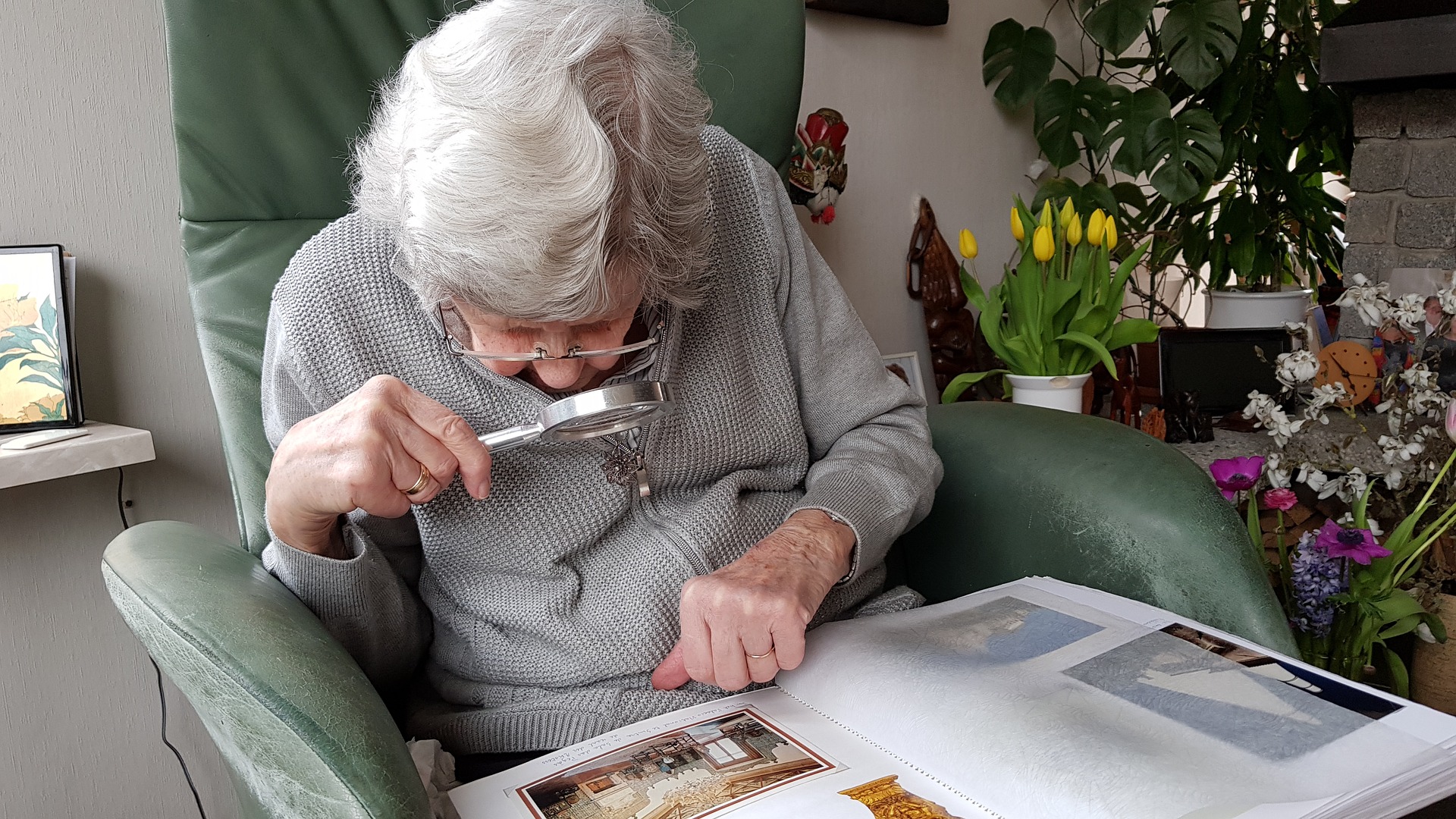There are many challenges we face as we grow older, but vision loss may be among the most terrifying. After having the ability to see for one’s whole life, losing the ability to read or navigate a room can be devastating. We already know that one of the hardest things about aging is losing control and independence, and few things do that more quickly than vision loss.
If you have a loved one facing losing their eyesight, compassion and understanding are necessary, especially as the patient may exhibit anger, frustration, or hopelessness. At A Banyan Residence, we also understand it is exceedingly difficult for everyone in the resident’s life as well. Here are some tips to face the situation, and ease your loved one’s transition.

What Causes Vision Loss as We Age?
The elderly population in the United States is growing. Within the next decade, an estimated 70 million Americans will be 65 years or older. Vision loss in this demographic is considered a major health care issue. In fact, nearly one third of our elderly population contracts some form of vision-reducing eye disease. Vision impairment is associated with a decreased ability to perform activities of daily living, and is associated with an increased risk for depression and despair. There are four causes for vision loss in the elderly.
Age Related Macular Degeneration: Known as AMD, this condition is the leading cause of loss of vision in people over 65 years of age. AMD is evidenced by degeneration of the area of the retina responsible for central vision. Risk factors for AMD include advancing age, family history of AMD and cardiovascular risk factors such as hypertension and cigarette smoking.
Glaucoma: This disease is actually a group of disorders characterized by optic nerve damage and visual field loss. It is a major cause of blindness in this country, and is the most commonly occurring cause of blindness among black Americans. Approximately 1 million senior citizens in the United States have experienced vision loss associated with glaucoma, and approximately 75 percent of persons who are legally blind because of glaucoma are over the age of 65.
Cataracts: According to the American Family Physician website, there is no universally accepted definition for a “cataract” . The term generally refers to lens opacities that interfere with vision function; with patients complaining of blurred vision or glare. In most cases, cataract progression is slow, with gradual loss of vision over months to years. Thankfully, surgery is safe and effective.
Diabetic Retinopathy:Diabetic retinopathy is a major cause of vision morbidity in the elderly population, with occurrences arising as the diabetes progresses.
Helping Your Loved One Cope with Their Vision Loss
Everything in Its Place: While it is always advisable to make sure that an elderly patient’s belongings are always found in the same place, this is especially important for someone losing their vision. Make sure you replace anything you move, and remind them constantly of where important items are – the closer and more accessible, the better.
Speak Clearly: If your loved one is having trouble seeing, they will rely more heavily on their hearing if possible. Announce yourself when you walk in, and tell them what you are about to do. Make sure that you communicate verbally more than usual, in order to allow them to feel more involved in what is happening.
Encourage Social Outings: As an elderly person loses their vision, they may feel more and more isolated Their world can seem very small. Encourage them to remain active. If in assisted living, ask another resident to come escort them to dinner, or ask them to go to their favorite movie and simply listen to the dialogue. Often, enlisting a more able-bodied neighbor to visit with them makes both residents feel more fulfilled. If at home, listen to audio books with them, or take them for a walk outside, even if they can only make out shapes and colors.
Use Technology: Although you may have to teach them how to use them, tablets or voice remotes can be lifesavers. They can turn on music or listen to the game; or learn to call or text loved ones with their voice. Consider what they love to do, and find the technology to assist.
Losing ones vision is a scary process. Be sure to seek out professional medical help to see if there are innovative ways to delay, halt or even reverse the damage – and never feel like you have to go it alone. At A Banyan Residence, we are dedicated to providing the richest possible quality of life for all our residents. Call us today for a tour.
